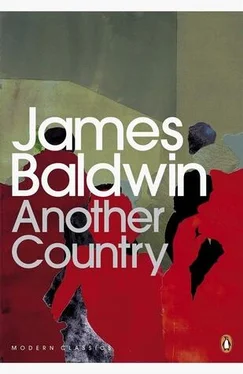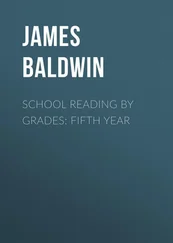James Baldwin - Another Country
Здесь есть возможность читать онлайн «James Baldwin - Another Country» весь текст электронной книги совершенно бесплатно (целиком полную версию без сокращений). В некоторых случаях можно слушать аудио, скачать через торрент в формате fb2 и присутствует краткое содержание. Год выпуска: 2001, Издательство: Penguin Books, Жанр: Современная проза, на английском языке. Описание произведения, (предисловие) а так же отзывы посетителей доступны на портале библиотеки ЛибКат.
- Название:Another Country
- Автор:
- Издательство:Penguin Books
- Жанр:
- Год:2001
- ISBN:нет данных
- Рейтинг книги:3 / 5. Голосов: 1
-
Избранное:Добавить в избранное
- Отзывы:
-
Ваша оценка:
- 60
- 1
- 2
- 3
- 4
- 5
Another Country: краткое содержание, описание и аннотация
Предлагаем к чтению аннотацию, описание, краткое содержание или предисловие (зависит от того, что написал сам автор книги «Another Country»). Если вы не нашли необходимую информацию о книге — напишите в комментариях, мы постараемся отыскать её.
is a novel of passions — sexual, racial, political, artistic — that is stunning for its emotional intensity and haunting sensuality, depicting men and women, blacks and whites, stripped of their masks of gender and race by love and hatred at the most elemental and sublime. In a small set of friends, Baldwin imbues the best and worst intentions of liberal America in the early 1970s.
Another Country — читать онлайн бесплатно полную книгу (весь текст) целиком
Ниже представлен текст книги, разбитый по страницам. Система сохранения места последней прочитанной страницы, позволяет с удобством читать онлайн бесплатно книгу «Another Country», без необходимости каждый раз заново искать на чём Вы остановились. Поставьте закладку, и сможете в любой момент перейти на страницу, на которой закончили чтение.
Интервал:
Закладка:
Just above my head .
That was a song that Ida sometimes sang, puttering inefficiently about the kitchen, which always seemed sandy with coffee grinds and vaguely immoral with dead cigarettes on the burnt, blistered paint of the shelves.
Perhaps the answer was in the songs.
Just above my head,
I hear music in the air.
And I really do believe
There’s a God somewhere.
But was it music in the air, or trouble in the air? He began whistling another song:
Trouble in mind, I’m blue,
But I won’t be blue always,
’Cause the sun’s going to shine
In my back door someday.
Why back door? And the sky now seemed to descend, no longer phosphorescent with possibilities, but rigid with the mineral of choices, heavy as the weight of the finite earth, onto his chest. He was being pressed: I’m pressing on, Ida sometimes sang, the upward way!
What in the world did these songs mean to her? For he knew that she often sang them in order to flaunt before him privacies which he could never hope to penetrate and to convey accusations which he could never hope to decipher, much less deny. And yet, if he could enter this secret place, he would, by that act, be released forever from the power of her accusations. His presence in this strangest and grimmest of sanctuaries would prove his right to be there; in the same way that the prince, having outwitted all the dangers and slaughtered the lion, is ushered into the presence of his bride, the princess.
I loves you, Porgy, don’t let him take me.
Don’t let him handle me with his hot hands.
To whom, to whom, did she sing this song?
The blues fell down this morning. The blues my baby gave to me . Water trickled past his ear, onto his wrist. He did not move and the slow tears rolled from the corners of his eyes.
“You’re groovy, too,” he heard Belle say.
“For real?”
“For real.”
“Let’s try to make it to Spain. Let’s really try.”
“I’ll get dressed up Monday, uptown style”—she giggled
—“and I’ll get a job as receptionist somewhere. I hate it, its such a drag, but, that way, we can get away from here.”
“Do that, baby. And I’ll get a job, too, I promise.”
“You don’t have to promise.”
“But I do.”
He heard their kiss, it seemed light and loving and dry, and he envied them their deadly and unshakable innocence.
“Let’s ball.”
“Not here. Let’s go downstairs.”
He heard Lorenzo’s laugh. “What’s the matter, you shy?”
“No.” He heard a giggle and a whisper. “Let’s go down.”
“They’re stoned out of their heads, they don’t care.”
She giggled again. “Look at them.”
He closed his eyes. He felt another weight on his chest, a hand, and he looked into Harold’s face. Terribly weary and lined and pale, and his hair was damp and curled on his forehead. And yet, beneath this spectacular fatigue, it was the face of a very young boy which stared at him.
“How’re you doing?”
“Great. It was great charge.”
“I knew you’d dig it. I like you, man.”
He was surprised and yet not surprised by the intensity in Harold’s eyes. But he could not bear it; he turned his face away; then he put the weight of Harold’s head on his chest.
“Please, man,” he told him after a moment, “don’t bother. It’s not worth it, nothing will happen. It’s been too long.”
“What’s been too long?”
And Vivaldo smiled to himself suddenly, a smile as sad as his tears, thinking of shooting matches and other contests on rooftops and basements and in locker-rooms and cars half his lifetime ago. And he had dreamed of it since, though it was only now that he remembered the dreams that he had dreamed. Feeling very cold now, inwardly cold, with Harold’s hand on his cock and Harold’s head on his chest, and knowing that: yes, something could happen, he recalled his fantasies — of the male mouth, male hands, the male organ, the male ass. Sometimes, a boy — who always rather reminded him of his younger brother, Stevie, and perhaps this was the prohibition, as, in others, it might be the key — passed him, and he watched the boy’s face and watched his ass, and he felt something, wanting to touch the boy, to make the boy laugh, to slap him across his young behind. So he knew that it was there, and he probably wasn’t frightened of it any more; but it was, possibly, too expensive for him, it did not matter enough. So he said to Harold, gently, “Understand me, man, I’m not putting you down. But my time with boys was a long time ago. I’ve been busy with girls. I’m sorry.”
“And nothing can happen now?”
“I’d rather not. I’m sorry.”
Harold smiled. “I’m sorry, too.” Then, “Can I lie here with you, like this, just the same?”
Vivaldo held him and closed his eyes. When he opened them, the sky was a great brass bowl above him. Harold lay near him, one hand on Vivaldo’s leg, asleep. Belle and Lorenzo lay wrapped in the blanket, like two dirty children. He stood up, moving too close to the edge, getting a dreadful glimpse of the waiting, baking streets. His mouth felt like Mississippi in the days when cotton was king. He hurried down the stairs into the streets, hurrying home to Ida. She would say, “My God, Vivaldo, where’ve you been? I’ve been calling this house all night long to let you know I had to go and sit in with some fellows in Jersey City. I keep telling you we better get an answering service, but you never hear anything I say!”
4
And the summer came, the New York summer, which is like no summer anywhere. The heat and the noise began their destruction of nerves and sanity and private lives and love affairs. The air was full of baseball scores and bad news and treacly songs; and the streets and the bars were full of hostile people, made more hostile by the heat. It was not possible in this city, as it had been for Eric in Paris, to take a long and peaceful walk at any hour of the day or night, dropping in for a drink at a bistro or flopping oneself down at a sidewalk café—the half-dozen grim parodies of sidewalk cafés to be found in New York were not made for flopping. It was a city without oases, run entirely, insofar, at least, as human perception could tell, for money; and its citizens seemed to have lost entirely any sense of their right to renew themselves. Whoever, in New York, attempted to cling to this right, lived in New York in exile — in exile from the life around him; and this, paradoxically, had the effect of placing him in perpetual danger of being forever banished from any real sense of himself.
In the evenings, and on week ends, Vivaldo sat in his undershorts at the typewriter, his buttocks sticking to the chair, sweat rolling down his armpits and behind his ears and dripping into his eyes and the sheets of paper sticking to each other and to his fingers. The typewriter keys moved sluggishly, striking with a dull, wet sound — moved, in fact, rather the way his novel moved, lifelessly, pushed forward, inch by inch by recalcitrant inch, almost entirely by the will. He scarcely knew what his novel was about any longer, or why he had ever wished to write it, but he could not let it go. He could not let it go, nor could he close with it, for the price of that embrace was the loss of Ida’s, or so he feared. And this fear kept him suspended in a pestilential, dripping limbo.
Their physical situation, in any case, was appalling. Their apartment was too small. Even had they both kept regular hours, had worked all day and come home only in the evenings, they would have been cramped; but some weeks Vivaldo worked nights in the bookstore and some weeks he worked days; and Ida, too, was on a kind of universal, unpredictable shift at the restaurant, sometimes working lunch and supper, sometimes either, sometimes both. They each hated their jobs — which did not help their relationship with one another — but Ida was the most popular waitress her boss had, which gave her a certain leeway, and Vivaldo could no longer accept those more demanding and more lucrative jobs which offered him a future he did not want. They were both, as it were, racing before a storm, struggling to “make it” before they were sucked into that quicksand, which they saw all around them, of an aimless, defeated, and defensive bohemia. And this meant that they could not hope to improve their physical situation, being scarcely able to maintain the apartment that they had.
Читать дальшеИнтервал:
Закладка:
Похожие книги на «Another Country»
Представляем Вашему вниманию похожие книги на «Another Country» списком для выбора. Мы отобрали схожую по названию и смыслу литературу в надежде предоставить читателям больше вариантов отыскать новые, интересные, ещё непрочитанные произведения.
Обсуждение, отзывы о книге «Another Country» и просто собственные мнения читателей. Оставьте ваши комментарии, напишите, что Вы думаете о произведении, его смысле или главных героях. Укажите что конкретно понравилось, а что нет, и почему Вы так считаете.












